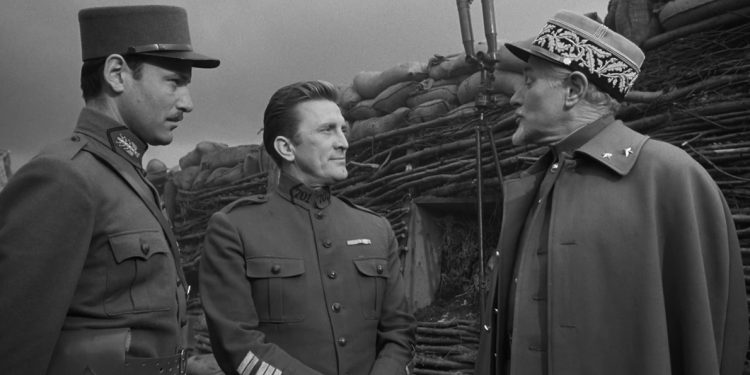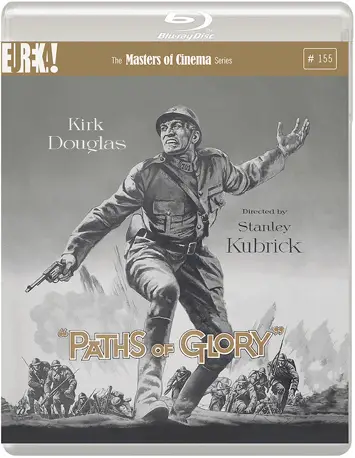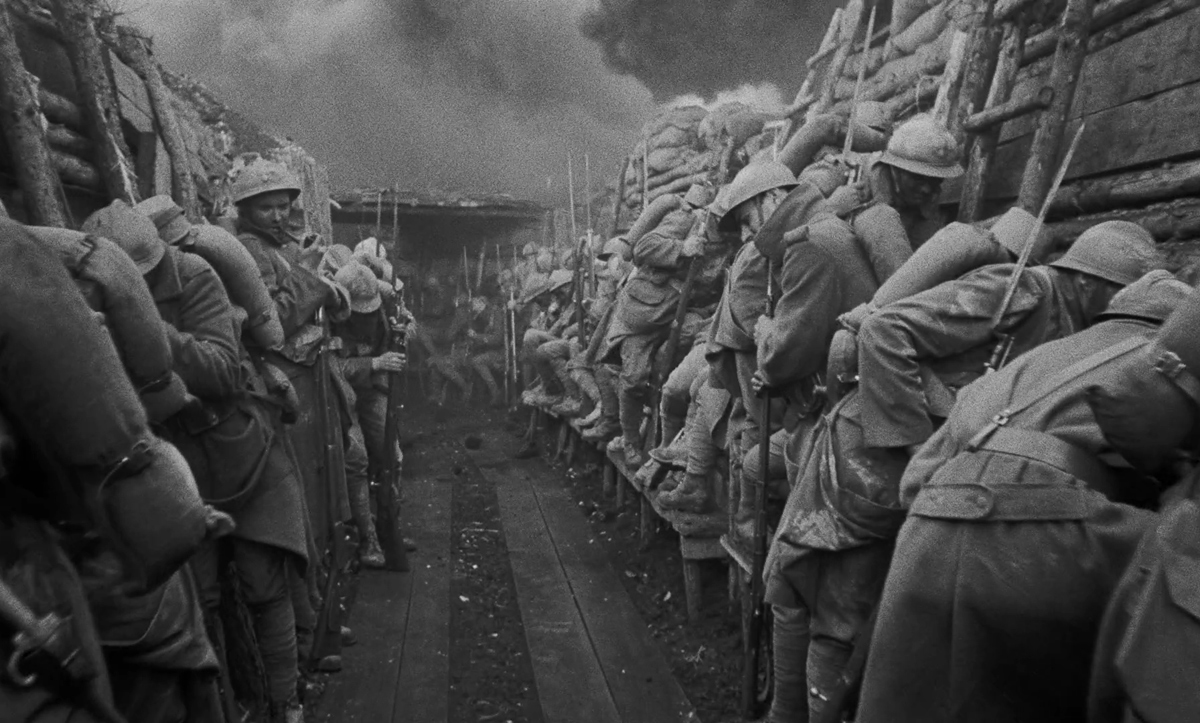Paths of Glory (1957) – Film Review

Director: Stanley Kubrick
Cast: Kirk Douglas, Ralph Meeker, Adolphe Menjou
Certificate: PG
By Sarah Morgan
I have a love/hate relationship with Stanley Kubrick’s movies.
While I have nothing but admiration for Spartacus, Dr Strangelove and The Shining, I find 2001: A Space Odyssey (sorry, sci-fi fans, I know you’ll hate me for this) and Barry Lyndon self-indulgent and, I’m afraid, chronically boring.
I also think his earlier movies, made before his reputation really took off, are, by and large, more interesting than his later ones. Paths of Glory, his fourth film, is certainly far superior to his final one, Eyes Wide Shut.
 In fact, Paths of Glory is a brilliant indictment of war, the hypocrisy of those in authority and the futility of it all, themes that would crop up in some of Kubrick’s later offerings.
In fact, Paths of Glory is a brilliant indictment of war, the hypocrisy of those in authority and the futility of it all, themes that would crop up in some of Kubrick’s later offerings.
“Soldiers mowed down by enemy bullets”
The story, very loosely based on Humphrey Cobb’s 1935 novel of the same name, takes place in France in 1916. Brigadier Mireau refuses an order to take the strategically important Anthill from its German occupants, citing the impossibility of the task. However, when he’s promised a promotion if his troops are successful, he agrees, passing on the responsibility for the attack to the battle-weary but effective Colonel Dax.
While the latter knows the attack is doomed to fail, he’s nevertheless forced to send the men in his charge to almost certain doom. Sure enough, the raid on the Anthill gets nowhere, with soldiers mowed down by enemy bullets almost as soon as they leave their trench.
A desperate Mireau, angered that one company, after seeing what has happened to their comrades, refuses to join the raid, orders an artillery regiment to fire on them, which he knows would force them out into the open. The artillery commander refuses, so in frustration and to deflect from his own actions, Mireau makes an example of three infantrymen by court-martialling them on charges of cowardice.
Dax, a lawyer in peacetime, defends the men, and brings Mireau’s efforts to kill his own troops to light. His reward for being a good officer is to be sent back to the front…
Kirk Douglas, who was also one of the film’s producers, plays Dax, toning down his usual eye-catching acting style. Clearly he enjoyed working with Kubrick because a few years later, they reteamed for the aforementioned Spartacus.

“Cultural, historical and aesthetic importance”
The rest of the cast is excellent too, with some familiar character actors popping up in supporting roles, including George Macready as the increasingly deranged Mireau, and Joe Turkel as one of the soldiers on trial – he had already worked with Kubrick on his previous movie, The Killing, and they collaborated again more memorably on The Shining, in which Turkel plays the sinister bartender. And look out for Kubrick’s wife, Christine, as a German singer in the closing scenes.
Kubrick worked on the superb screenplay with Calder Willingham and Jim Thompson, who would find individual fame later in their careers; Willingham for his screenplays for The Graduate and Little Big Man, and Thompson for his crime novels, including The Grifters. Their contribution should be applauded, although it’s Kubrick’s direction that really adds another dimension to the film; he shoots it almost documentary-style, perhaps as a hangover to his days as a photographer for Life magazine. There’s a particularly stunning scene to look out for involving Dax walking through the trenches, seen from both his perspective and those of his men, and it looks better than ever before thanks to this new 4k UHD version.
Paths of Glory has been preserved in the United States National Film Registry due to its cultural, historical and aesthetic importance, a position it truly deserves – it certainly falls into the category of Kubrick films I love rather than hate.
Special features include interviews with Kubrick fans and experts, including Richard Ayoade, which were recorded for a previous release in 2016. However, if you don’t have that version, they add valuable context and information on the film’s production.
- Limited Edition O-Card slipcase featuring new artwork by Scott Saslow [2000 copies]
- 4K (2160p) UHD Blu-ray presentation, presented in Dolby Vision HDR from a 4K scan of the original camera negative
- Audio commentary with film scholar Adrian Martin
- Video interview with Kubrick scholar Peter Kramer
- Video interview with filmmaker Richard Ayoade
- Interview with critic / author Richard Combs
- Optional English SDH
- Original theatrical trailer
- Isolated music & effects track
- A collector’s booklet featuring writing by Glenn Kenny, the words of Kubrick, and archival imagery








